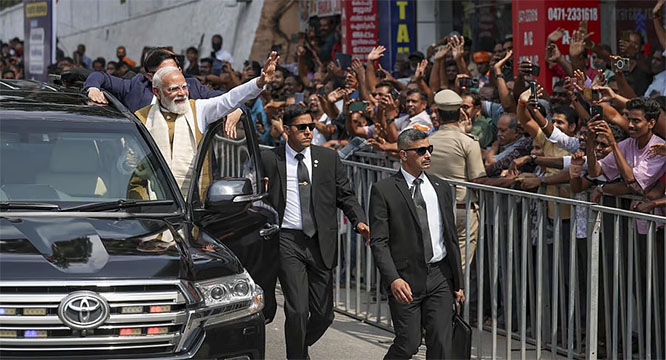The World Health Organization (WHO) has endorsed Mosquirix, the RTS,S/AS01 malaria vaccine — the first and the only till date — against the mosquito-borne disease that kills more than 400,000 people a year, mostly African children.
The vaccine acts against plasmodium falciparum -- one of five malaria parasite species and the most deadly, most prevalent in Africa. The vaccine’s trial data showed that it could prevent 4 out of 10 malaria cases over a period of four years, when four doses were administered to children. Mosquirix is the first malaria vaccine which has finished its clinical development process.
Mosquirix, is not just a first for malaria; it is the first developed for any parasitic disease. Parasites are much more complex than viruses or bacteria, and the quest for a malaria vaccine has been underway for 100 years.
WHO’s approval followed a review of a pilot programme deployed since 2019 in Ghana, Kenya and Malawi in which more than two million doses were given of the vaccine, first made by the pharmaceutical company GSK in 1987.
In clinical trials, the vaccine had an efficacy of about 50 per cent against severe malaria in the first year, but the figure dropped close to zero by the fourth year. And the trials did not directly measure the vaccine’s impact on deaths, which has led some experts to question whether it is a worthwhile investment in countries with countless other intractable problems.
Malaria research is littered with vaccine candidates that never made it past clinical trials. Bed nets, the most widespread preventive measure, cut malaria deaths in children younger than 5 by only about 20%.
Against that backdrop, the new vaccine, even with modest efficacy, is the best new development in the fight against the disease in decades, some experts said.
How malaria affects the world
Malaria is a life-threatening disease caused by parasites that are transmitted to people through the bites of infected female Anopheles mosquitoes.
In 2019, there were an estimated 229 million cases of malaria worldwide and the death toll due to malaria was 4,09,000.
African regions carry a disproportionately high share of the global malaria burden. In 2019, the region was home to 94% of malaria cases and deaths.
How to use the vaccine
WHO has recommended that in the context of comprehensive malaria control, Mosquirix be used for the prevention of P. falciparum malaria in children living in regions with moderate to high transmission. Mosquirix is to be given in three doses between ages 5 and 17 months, and a fourth dose roughly 18 months later.
Funds for the programme were mobilised through Gavi, the Vaccine Alliance; the Global Fund to Fight AIDS, Tuberculosis and Malaria; and Unitaid, according to WHO.
The Bill & Melinda Gates Foundation provided catalytic funding for late-stage development of RTS,S between 2001 and 2015.
Germany's BioNTech, which developed a coronavirus vaccine with US giant Pfizer, also said it aimed to start trials for a malaria vaccine next year using the same breakthrough mRNA technology.
The WHO also hopes this latest recommendation will encourage scientists to develop more malaria vaccines.







Comments
Add new comment